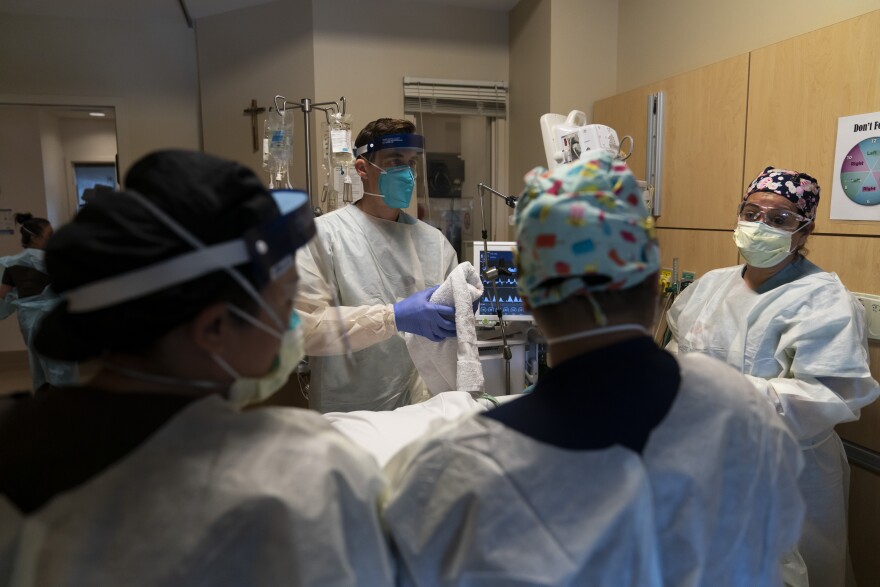A survey from High Point University finds that fewer than half of North Carolinians trust their doctor “a lot” when it comes to information about COVID. At 46 percent, doctors polled higher than other sources such as news and social media, but this still points to the challenges facing health care providers.
Dr. Ashley Perrott is a primary care physician for Novant Health in Winston-Salem. She spoke with WFDD's Paul Garber about doctor-patient trust in the COVID era.
Interview Highlights
On what we know now compared to the early days of the pandemic:
We have a wealth of information now compared to two years ago. So we're not guessing anymore about a lot of things. And I think that we're honest about what we don't know about this virus. So I think the misinformation was frustrating to everyone to begin with. And I think that emotion stuck around even though we have much better scientifically backed, peer-reviewed information now that we can trust more. We have better information about treatments to help with symptoms, treatments to help with some of the things that happen to people who have severe COVID that are in the hospital that we just didn't know at first.
On patient pushback when talking about vaccines:
I think one of the biggest problems about the vaccine and the misinformation about the vaccine was that it was a new technology that we were talking about. Well, what was new was that it was for the COVID virus, which was also new, but the technology has been around for over a decade. And so in medicine, where we knew that clinical trials and studies had been going on for, well, more than a decade to show us the safety of the mechanism of the vaccine, we felt more comfortable than lots of patients who were hearing, ‘This is brand new,' and I imagine was scary to them. So I think it just takes a conversation to be able to overcome that. Sometimes it takes more than one conversation. And in primary care, that's what we do. That's the relationship that we build, the care that we deliver and help to lead our patients into the healthiest life that we can.
On COVID versus more general concerns:
I think it's all based in a little bit of fear, whether that's obvious to the patient or the doctor or not. I think people who have experienced something in healthcare in the past that scared them, rightly so, were scared again. And so we really believe that that relationship with a primary care provider who you can go and have a one-on-one conversation with that's respectful is important. It's not my job to shame anybody into doing something that I want them to do, but it is my job to make sure that they have the best evidence that I can give them to make an informed decision.

